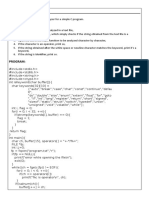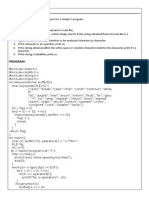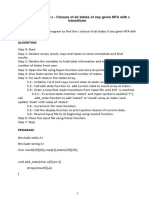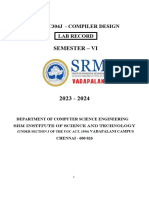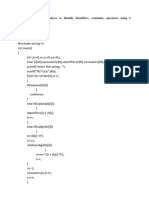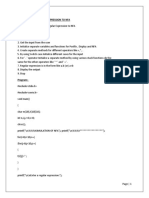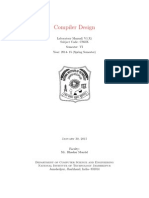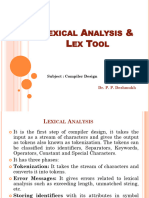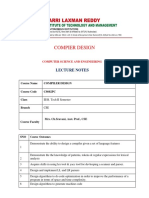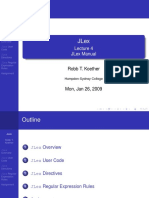0% found this document useful (0 votes)
17 views42 pagesCompiler Design File New
The document provides a comprehensive guide on implementing various components of a compiler, including a lexical analyzer in C, using Lex for lexical analysis, and YACC for parsing arithmetic expressions and variables. It also covers converting NFAs with ε-transitions to NFAs without them, performing loop unrolling, and converting an NFA to a DFA. Each section includes sample code and expected outputs to illustrate the concepts.
Uploaded by
sahilrz78600Copyright
© © All Rights Reserved
We take content rights seriously. If you suspect this is your content, claim it here.
Available Formats
Download as PDF, TXT or read online on Scribd
0% found this document useful (0 votes)
17 views42 pagesCompiler Design File New
The document provides a comprehensive guide on implementing various components of a compiler, including a lexical analyzer in C, using Lex for lexical analysis, and YACC for parsing arithmetic expressions and variables. It also covers converting NFAs with ε-transitions to NFAs without them, performing loop unrolling, and converting an NFA to a DFA. Each section includes sample code and expected outputs to illustrate the concepts.
Uploaded by
sahilrz78600Copyright
© © All Rights Reserved
We take content rights seriously. If you suspect this is your content, claim it here.
Available Formats
Download as PDF, TXT or read online on Scribd
/ 42








